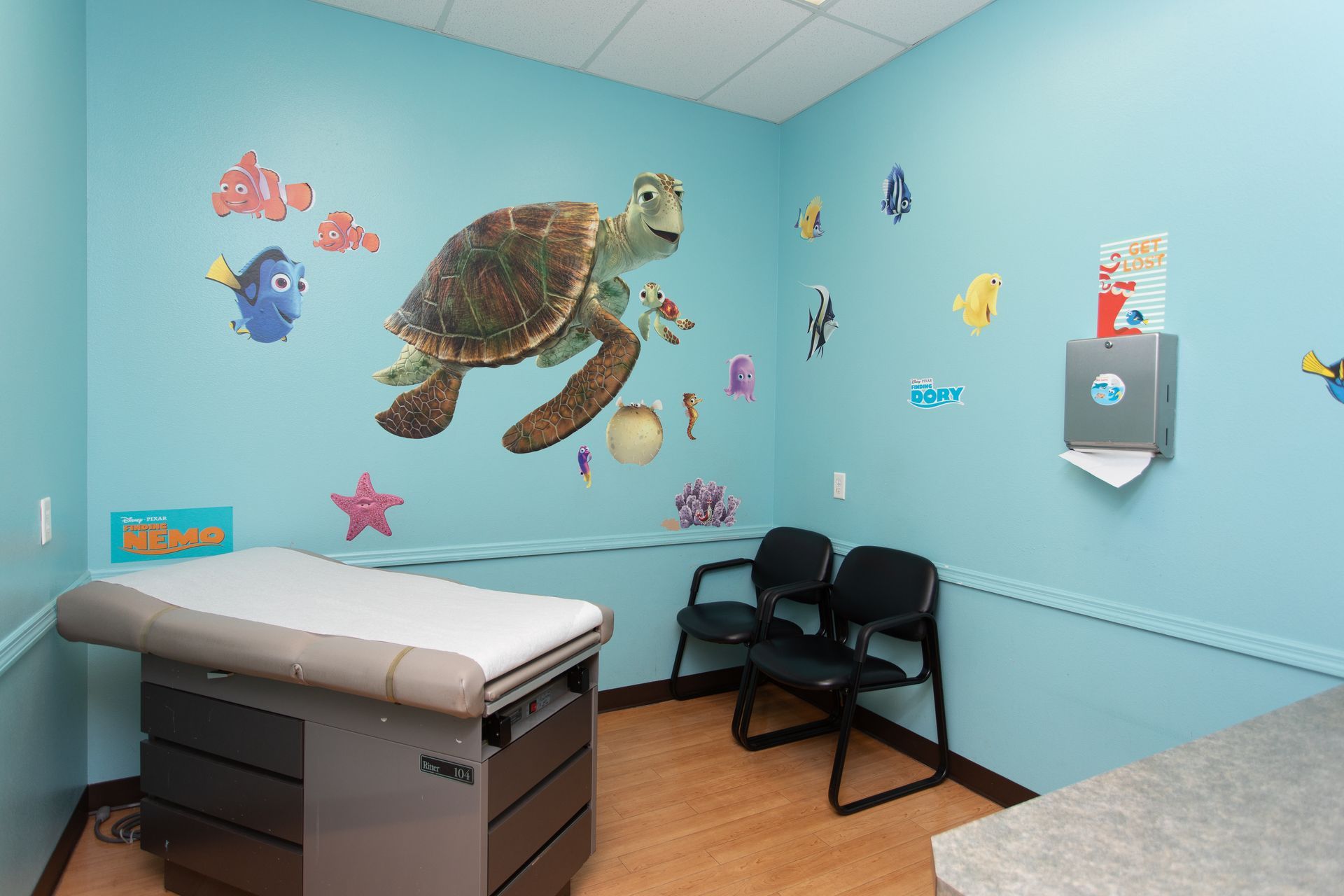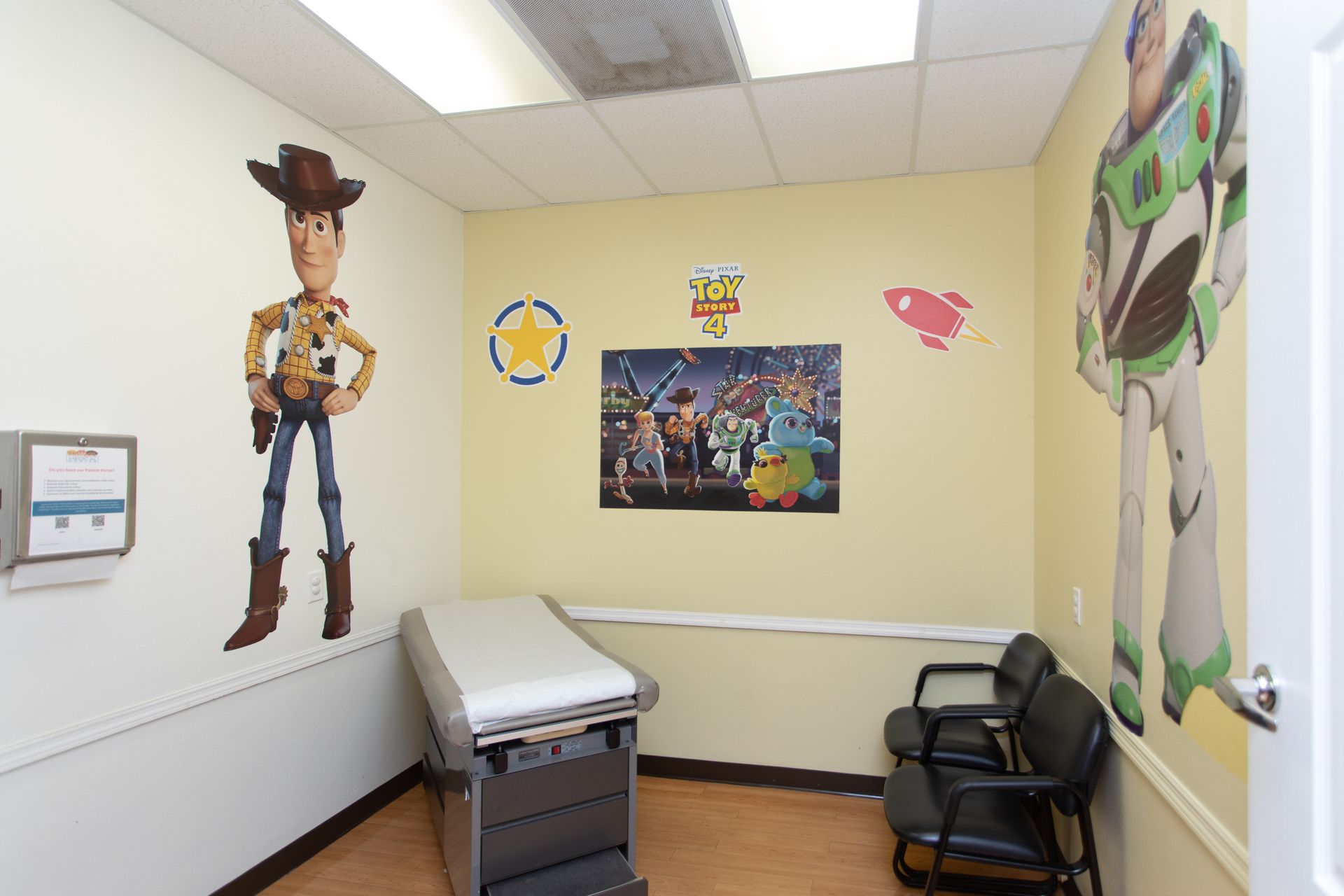I have taken all three of my girls to this practice for the past 10 years, one has recently aged out of this practice and my second will soon. Dr. Cavannaugh is the absolute BEST, I’m so grateful for her kindness and attention over the years. The office is impeccably clean and always efficient whenever I need anything. So grateful for this office over the years!
Dr. Black is hands down the most amazing pediatrician. I was referred to her by a very close friend and I couldn’t be happier. She is caring and she always takes her time with our son. The level of care that she has shown for my family and my best friend’s family is unmatched. I’m just sad that my child is getting older and can’t stay with her forever.
My son been coming to this clinic since he was born and he is now 14yrs old. The doctor's here are absolutely exceptional, kind, patient and incredibly thorough. They take their time to listen to all of my concerns and answered every question without rushing. It’s rare to find a doctor who truly makes you feel seen and heard, and they do just that. Their professionalism and compassion makes all the difference. I’m so grateful for the outstanding care my son receives every time he comes to this clinic
I have never had a bad experience here. My kids see Dr. Pantages and him and his staff are always so friendly and helpful. I highly recommend them.
Dr. Pantages and his MA Jennifer are amazing. My child has been going here for 5 months and every time I see either one of them they are always welcoming and have a cheerful attitude. Dr. Pantages always ends with "Do you have any other questions for me?" He genuinely cares for my child. If I ask for shot forms from Jennifer she makes sure I don't leave without then. Anazing doctor, amazing staff. Great team work them 2! Dr. Black is also amazing ! Genuinely cares as well!
I highly recommend Jamie Conrad from behavioral health. She has held my hand, followed up, made sure my grandsons needs are being met all while being compassionate and kind. Thank you so much.
I highly recommend Jamie Conrad from behavioral health. She has held my hand, followed up, made sure my grandsons needs are being met all while being compassionate and kind. Thank you so much.
Dr Pantages and the staff at Children’s Medical Center in Palm Harbor have went over and beyond to give my medically complex boys the care they’ve needed the past few years. Dr. P has the patience of a saint, and trust me… my boys have tested him. He takes time to answer my questions, and has provided referrals to specialists, ordered therapies, and responded to our messages quickly and efficiently. He is truly the best!
Their office staff is always helpful in scheduling well visits and same day sick visits. They have responded quickly and aggressively if needed with my youngest son who is diagnosed with a primary immunodeficiency.
I appreciate the large waiting room but grateful we never had a long wait (usually only 5-10 mins if that). I am thankful for the care my boys have received since becoming patients there.
My husband and I have taken all 5 of our children for 15 years to this practice to see Dr Weber and all doctors were always delightful and helpful. They always were quick to help, find answers make my children feel comfortable and the staff has always been exceptional.
Dr. Alvarez is the best. He was my pediatrician as a child and now we are lucky enough to have care for our newborn. He is kind, knowledgeable, and a great person. Dr. Alvarez, Dr. Klein, and the entire CMS team are excellent. Highly recommended.





